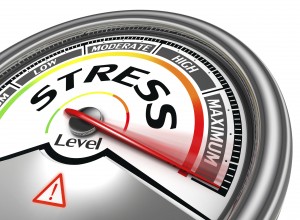Anyone who’s been in a relationship knows–there are ups and downs. Good times and bad. That’s why wedding vows require you to promise that you’ll stick with someone “for better or for worse.” But, as we see in so many movies and hear in so many stories, it seems that true love is the ultimate end goal for so many people. So many people spend much of their lives seeking true companionship. So: are relationships really the key to happiness?
 Image Found Here
Image Found Here
In an article called Does marriage make people happy, or do happy people get married? in the Journal of Socio-Economics by Alois Stutter and Bruno S. Frey, this question is explored exactly. In fact, this examines whether this hypothesized correlational/causal relationship might have reverse causality. The article discusses a multitude of surveys that indicate that with marriage comes increased physical and psychological well-being. While it is a relatively subjective question, it has been found that marriage has a direct correlation with happiness, regardless of gender. However, it seems that difference in happiness between married people and single people has become smaller.
In a longitudinal study to examine whether happiness led to marriage or marriage led to happiness, people were asked to rate their overall happiness/satisfaction with life on a scale from 0 to 10 over a period of time, and people were asked separately if they started the sample single and then got married during the period. The question asked intended to incorporate both a socioeconomic and a general emotional sense of well-being.
One table of data from the study was relatively inconclusive–confounding variables such as employment/unemployment or children, might have contributed to the well-being of participants, and therefore it was impossible to determine if marriage alone made people happier. In a second set of data, it was found that having children slightly increased happiness. A longitudinal observational study conducted in Germany between the years of 1984 and 2000 showed more conclusive results, where people who married eventually were generally happier and more satisfied than people who remained single.
Another study in the article shows that the years leading up to and at the beginning of marriage came with higher happiness and satisfaction than times later in the marriage (the happiness line on the graph increased and then decreased). Also, people who married and stayed married tended to be happier than people who married and later divorced.
In conclusion, married people and people who expected to marry were simply happier than people who were to remain single.
Another article on Psychology Today by Sonja Lyubomirsky Ph.D. examines and discusses that the relationship is both causal and reverse causal. That is, being married increases our likelihood of being happy, but happy people are also more likely to get married in the first place. And, her article enforces the idea that the difference between happiness of married and single people gets smaller over time; the more time people are married, the less likely they are to be more happy than single people.
I’ve always pictured myself getting married and having lots of children. So, even if it isn’t for the entirety of the marriage (according to studies), confirming that marriage does lead to happiness is a comforting idea.


